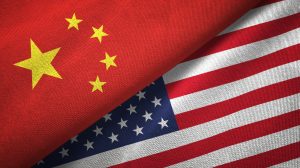According to U.S. House Speaker Kevin McCarthy, when it comes to China, “We’ll just need one philosophy, with one principle, and America will be stronger for the future to come.” His statement followed a 365-65 vote by the U.S. House of Representatives to pass a resolution creating a special Select Committee on China, which will reassess U.S. policy on China. The bipartisan committee, and McCarthy’s statement, are emblematic of the now well-established consensus that China poses the greatest long-term threat to U.S. interests.
Washington often pines after such bipartisan agreement in foreign policy — that politics may stop at the water’s edge so Americans can face foreign threats united. It has found that unity in the growing shadow of the threat posed by China. But chasing consensus could lead decision-makers in Washington astray, with disastrous consequences. Bipartisan consensus, after all, tends to be right more frequently when it’s not the product of fear. Today, anxiety around China is as mounting as national awareness of the challenge China poses to U.S. interests rises — embodied in the public fervor around the Chinese spy balloon that floated across the country last month.
Policymakers should exercise caution when using the lens of political consensus to authorize a slew of transformative decisions and policies in response to China’s coercive or aggressive actions. Mutual validation is not a substitute for individual judgment, as history has shown. In fact, it can very easily lead to disastrous consequences. Two of the most controversial decisions in U.S. foreign policy – the 1964 Tonkin Gulf Resolution and the 2003 invasion of Iraq — gained incredible bipartisan consensus.
In 1964, the Tonkin Gulf Resolution gave President Lyndon Johnson authority to increase U.S. involvement in the war between North and South Vietnam. After practically no debate in Congress, the joint resolution “to promote the maintenance of international peace and security in southeast Asia” passed with only two senators dissenting. What followed was a viciously unpopular war that divided the American people and exacerbated untold suffering for the Vietnamese people.
And no other decision so cautions against using political consensus to drive foreign policy so well as the Iraq War. Following the terrorist attacks on September 11, 2001, President George W. Bush’s administration found that rare bipartisan support for choices it developed into the Global War on Terror. In 2001, the Authorization for Use of Military Force (AUMF) — authorizing the use of the United States Armed Forces against those responsible for the September 11 attacks — became law with a single opposing vote in Congress. The 2002 vote authorizing the use of force in Iraq, widely considered to have given Bush the authority for the invasion, was supported by Hillary Clinton, John McCain, and the vast majority of their colleagues in the Senate. In 2003, the United States invaded Iraq.
If there is a single point (most) policymakers agree on 20 years later, it’s that the endeavor to “disarm Iraq of weapons of mass destruction, to end Saddam Hussein’s support for terrorism, and to free the Iraqi people” was, ultimately, a failure. Perhaps, as some point out, the decision to invade Iraq was only logical based on the (inaccurate) intelligence relied upon by policymakers. But just as influential as any evidence — misinformed or not — was the strong bipartisan consensus that allowed Congress to make the decision to invade and occupy Iraq.
Today, agreement in Washington about the threat China poses to U.S. interests bridges even the animus between the Trump and Biden administrations. The Trump administration characterized Beijing as a strategic competitor across economic, political, and military domains. Its 2017 National Security Strategy identified China as a challenge to “American power, influence, and interests, attempting to erode American security and prosperity.” The Biden administration’s 2022 Indo-Pacific Strategy is “premised on views similar to those of prior administrations from both political parties.” It recognizes the Indo-Pacific’s increasing importance as well as the China’s growing influence, aggressive behavior, and intentions.
After Republicans took back the House in the November elections, China remained top-of-mind. Congressman Michael McCaul and fellow Republicans praised the Biden administration’s sweeping expansion of the dual-use export control list in October to include numerous additional restrictions on transferring U.S. technology to Chinese semiconductor and artificial-intelligence companies. The Senate approved legislation in December from Senator Josh Hawley banning TikTok from government phones and other devices — with no opposition. The House Select Committee on China is an oasis of bipartisanship in a polarized Washington.
In fact, a significant source of political ire in foreign policy today is bound not in adverse partisan rhetoric, but the race to see who can become a greater China hawk.
But while a bipartisan diagnosis of the reality of the China challenge is essential in developing a strong U.S. position on China, political consensus should not preclude careful individual consideration of each decision related to China. What the United States does with a consensus matters most. That caution is even more important today when potential conflict with China is not limited to the military sphere, but is already well under way in the economic realm.
Twenty years on from one of the greatest foreign policy blunders in history — a decision made with strong bipartisan support — policymakers in Washington must keep in mind the value of individual judgment at each step of the way in the China-U.S. competition.

































